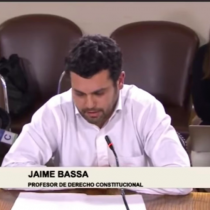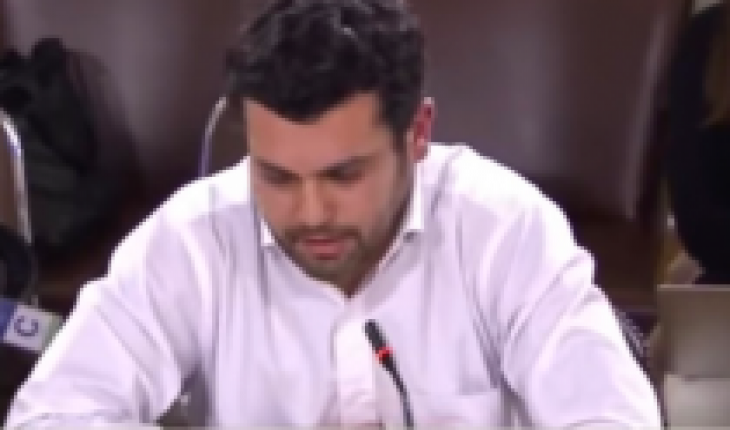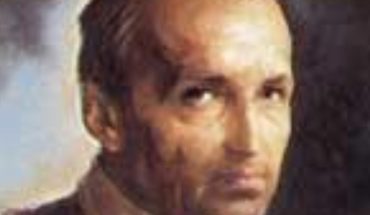
The vice president of the Constitutional Convention, Jaime Bassa (district 7) thanked this Sunday the support obtained in his election and made himself available to the presidency of Elisa Loncón to carry out the process of drafting the new Constitution for the country. “Today we are beginning to walk a republican path, but also a popular path, a path of democratic representation, but also of social participation,” he declared after obtaining a majority in a third vote count.
Bassa said that “the challenge we have now from now on is to be able to build that braid from justice, from inclusion, from respect and from diversity.” He added that “we have many outstanding challenges that are in some way the wounds and debts that arise from the social process that has brought us here.
In this regard, he referred to the prisoners of the social upheaval, stressing that “only this morning we publicly assumed the commitment to discuss a declaration of this assembly regarding the prisoners of the revolt.” “It is a debt that we have to be able to talk about, to pay off, and I believe that this is a good space to create the conditions for a democratic dialogue, justice, and inclusion,” he said.
In July 2018, the teacher, who has an extensive curriculum on constitutional issues, was harshly questioned even before he left with his speech, by deputies José Pérez (PR) and Osvaldo Urrutia (UDI), who pointed out that the guest was not dressed “correctly” to present his impressions before the commission. The lawyer was wearing neither a jacket nor a tie, which annoyed the honorable.
In his defense, Professor Bassa, took his minutes to expose his professional experience and explained why the use of the tie and jacket seemed to him accessories.
The first vice president of the Constitutional Convention is a full-time academic at the Valparaiso University School of Law. Professor of Constitutional Law and Political Theory, Researcher of the Center for Interdisciplinary Studies in Social Theory and Subjectivity, Director of the Department of Public Law and member of the Faculties of the Master in Philosophy, Doctorate in Law and the Doctorate in Interdisciplinary Studies on Thought, Culture and Society, of the same university.
In addition, he holds a Doctorate in Law from the University of Barcelona, Spain; Master in Philosophy from the University of Valparaíso; Master in Law mention Public Law, University of Chile and Degree in Law from the Pontificia Universidad Católica de Chile. Member of the Committee of Juridical Sciences, for the accreditation of postgraduate programs, of the National Commission of Accreditation.
Among his most recent publications are the books Constituyentes sin poder: una crítica a los límites epistémicos del Derecho moderno (Valparaíso, Edeval, 2018), Elementos de teoría y interpretación constitucional para el proceso constituyente (Santiago, ThomsonReuters, 2017), La Constitución chilena. A critical review of his political practice (ed., Santiago, LOM, 2015), Elements for a democratic constitutional theory (Santiago, Librotecnia, 2014) and the articles “The institutional interpretation of fundamental rights in a democratic state of law” (Constitutional Issues. Revista Mexicana de Derecho Constitucional, UNAM, Nº 37, 2017), “Una aproximación conceptual a la idea de “constitución económica” y sus alcances en la Constitución chilena” (Boletín Mexicano de Derecho Comparado, UNAM, Nº 145, 2016), “Mutación en los criterios jurisprudenciales de protección de los derechos sociales al trabajo y a la salud en Chile” (Revista Chilena de Derecho , PUC, vol. 42 N° 1, 2015), “Retos para el ordenamiento jurídico chileno ante el crecimiento sostenido de los flujos migratorios” (Estudios Constitucionales, U. de Talca, vol. 13 Nº 2, 2015).





